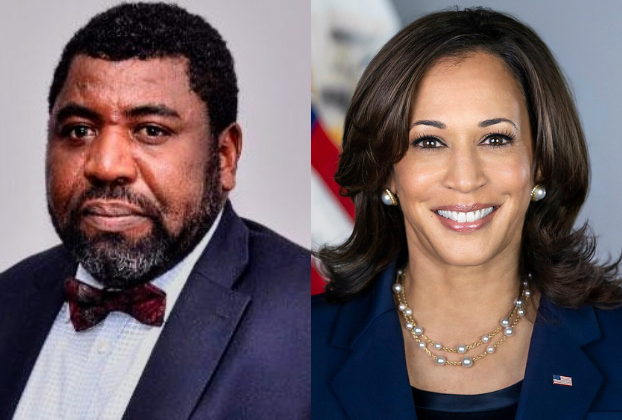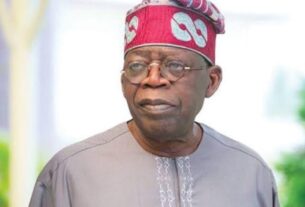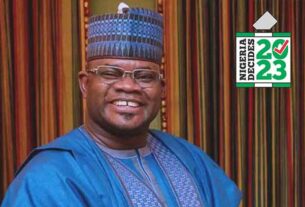By Anthony Kila
As predicted and auspicated, I have been reliably informed that a new group of Republicans, strategically aligning against the return of Donald Trump (with his new appendage, J.D. Vance) in the White House, will be unveiled in the next few days. Their clear and deliberated purpose is to convince registered Republicans and independent but Republican-leaning voters to vote and campaign for Kamala Harris in the upcoming 2024 elections.
For context to “as predicted and auspicated”, please refer to my earlier essay, “Path to Victory for Kamala Harris,” in which I outlined why and how Kamala Harris can become the next president of the United States.
The new group, as one can easily imagine, will be made up of those Republicans, and now former Republicans who do not buy the Trump hype at all or at least do not see enough reasons to allow, let alone support, former President Trump’s candidacy in 2024.
Allow me to point out some subtle but crucial differences between the Republicans or Republican voters who are with Donald Trump and J.D. Vance in 2024. I am including J.D. Vance in this equation because, contrary to Donald Trump’s assertion and attempt to make American voters and the world believe that the running mate does not matter in an election, that choice does matter and matters a lot.
Those around or who have read about it will remember how much damage the choice of Sarah Palin did to the historically challenged and unlucky 2008 campaign of the great John McCain in the election against Barack Obama and how the nomination of Joe Biden as running mate helped Barack Obama win that election. How can one forget or even underestimate the value that Mike Pence added to the victory of Donald Trump against Hillary Clinton in 2016?
Being Commander in Chief and CEO of a country in a presidential system and, indeed, leader in any system is a lot about making choices, and choosing a running mate is the first true measurable test a candidate makes. That choice says a lot about not only the worldview but also a candidate’s ability to read reality and seek and manage consultations. With the choice of J.D. Vance, Mr. Donald Trump sat a major test in 2024, and his response is affecting many people; Donald Trump knows that, but he is stuck.
Registered Republicans or Republican voters are now looking at Donald Trump’s bid or, shall we say, smelling the coffee he is offering, and what they see and smell divides them into three categories. There are those who fully buy into what the former President is offering in 2024 and think it is what America and the world need. There are those who can smell the rot, see the limits, and do not totally agree with Donald Trump’s character and proposals but think he is still a better option, or, shall we say, they think he is a lesser evil. They remind one of those who, in the 1970s, held their nose and voted for the Christian Democrats (Democrazia Cristiana DC) in Italy as advised by Indro Montanelli. Then there are those who say “no” to the return of Donald Trump and have resolved to take a stand against such a prospect.
Those Republicans who say “no to Trump in 2024” will likely be the ones inside and at the helm of the new alliance, which will be tagged Republicans for Kamala Harris or something along those lines. Their rallying point will be the danger they see for democracy and Republican values in Donald Trump.
My inkling (and desire) is that such a group will be made up of Republicans who feel that what binds Americans is bigger than what divides them and that when faced with an existential threat, it is not just fine but necessary to put aside partisan divisions and stand together those share democratic values and progress and against anyone that appears to want to corrupt or totally annihilate such values. For the sake of the country and democracy, they will put aside their partisan shirts and stand with traditional opponents to defeat a common and bigger threat.
The idea and practice of voting across party lines to achieve a common, determined goal are neither radical nor new. In the 1980s, many traditionally Democratic voters left their voting patterns to vote for Ronald Reagan; they became known as the Regan Democrats. In 2008 and, indeed, 2012, Barack Obama’s campaign was able to get more than a few Republicans who left their traditional voting patterns to vote for him. Barack Obama tried to call them “Obamacans”, but history and political literature remember them as Obama Republicans. I guess it does not matter much once you win…
In 2024, we shall see if they will be called “Republicans for Kamala Harris,” “Republicans for Kamala,” “Republicans for Harris,” or something else. Whatever they are called, my strong recommendation and expectation are that they are led by Republicans known for their strong and clear record of commitment to Republican values and loyalty to the Republican Party and that they are represented and spoken for by those who have worked with Donald Trump.
Republicans, known for their strong and clear record of commitment to Republican values and loyalty to the Republican Party, know where the votes are and how to get them out. Their records will easily show and remind voters how incongruous Donald Trump is with Republican Values and the Democratic system. Those who have worked with Donald Trump are primary witnesses and will be very credible and authoritative when they give first-hand accounts of the dangerous things that they have seen and now fear but that the rest of us have read and think.
With all its limits and flaws, the USA remains a benchmark of democracy and liberty for many across the world and by finding the clarity of mind and the courage of voice to openly and logically build and foster a coalition that can stop a force that blatantly disdains and attacks the values America proclaims to stand for, Republicans for Harris will in 2024 do the world a favour.
Join me on Twitter @anthonykila to continue these conversations.
Anthony Kila is an Institute Director at CIAPS. www.ciaps.org.






